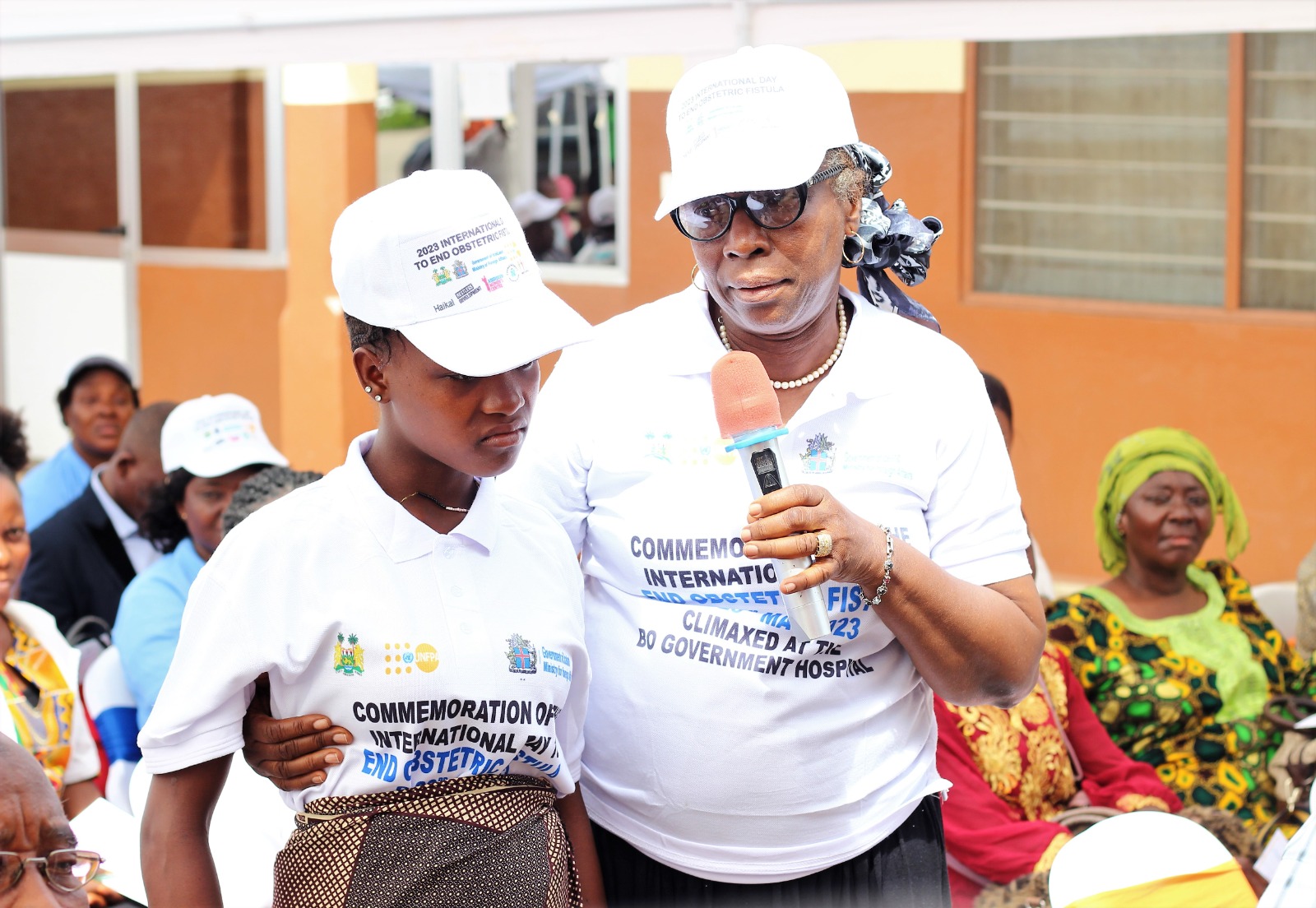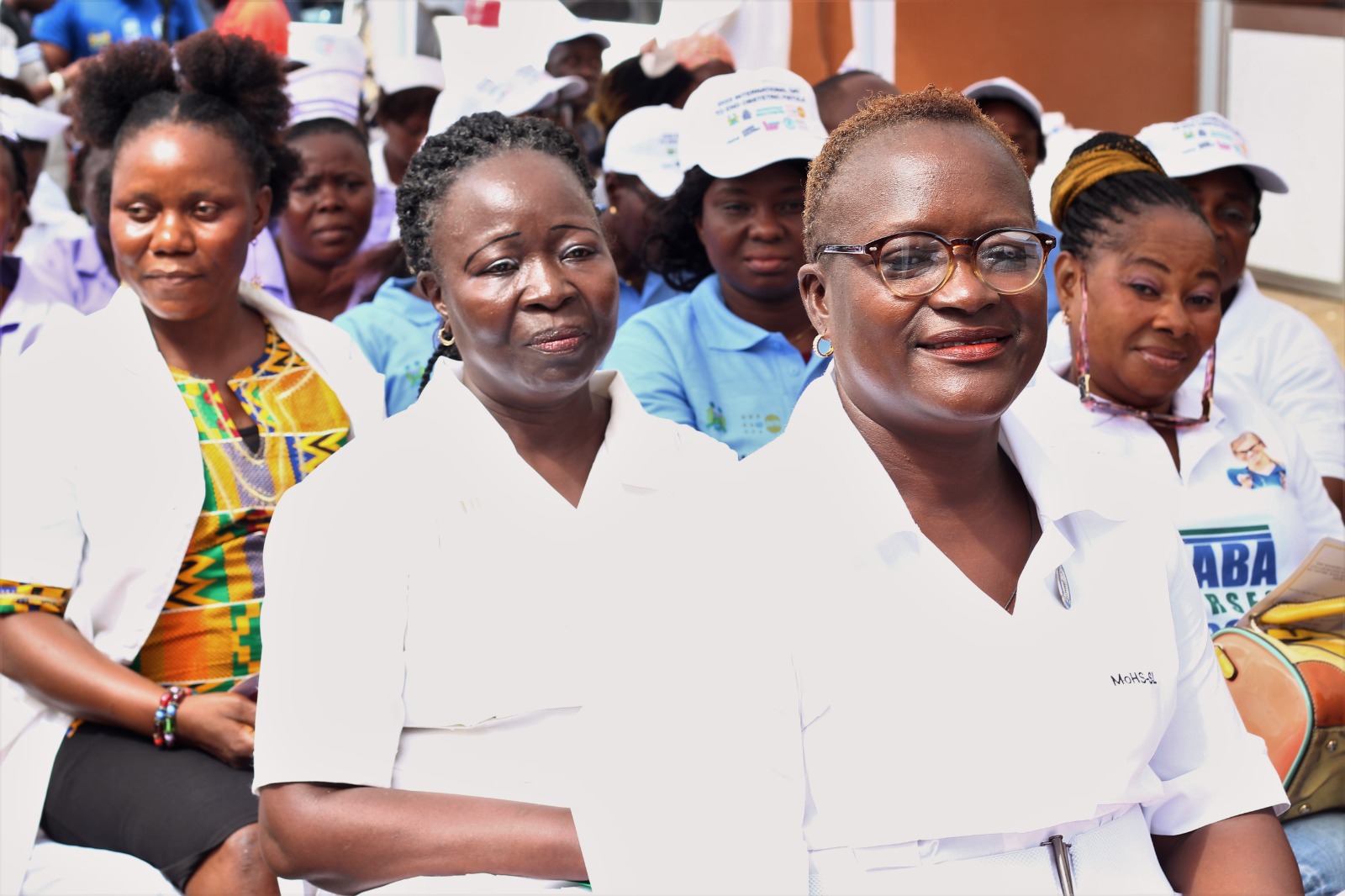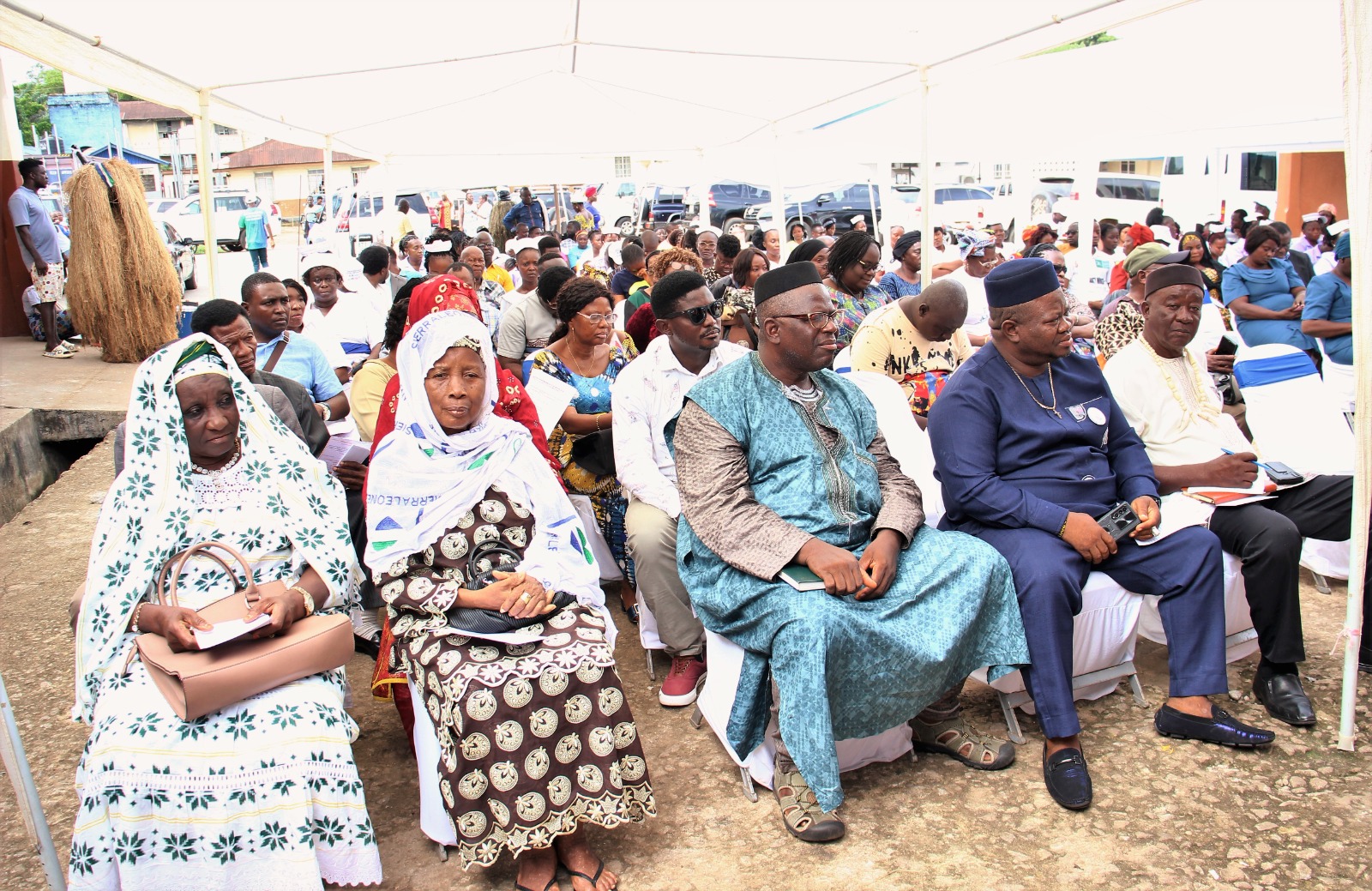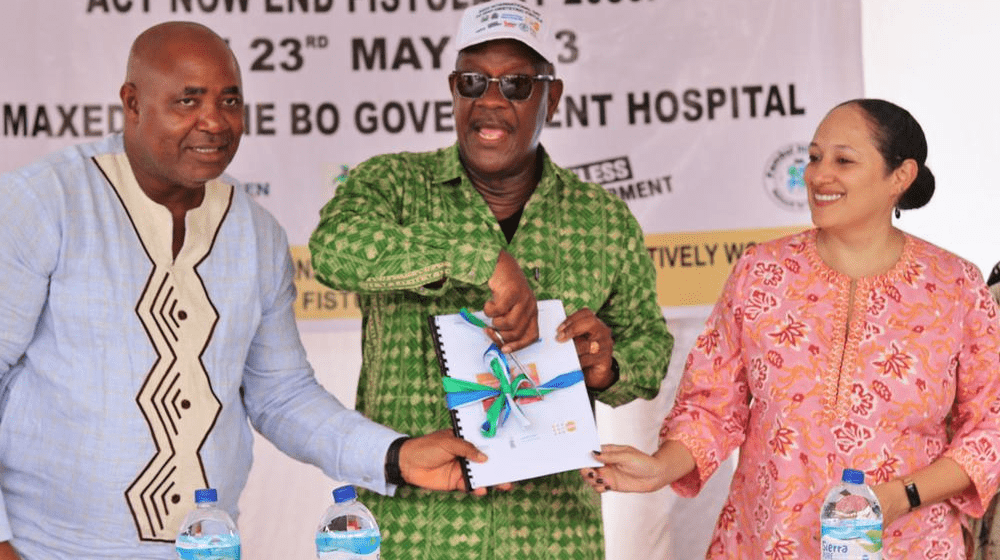FREETOWN, 23 May 2023- The United Nations Population Fund (UNFPA) on 23 May 2023 joined the Ministry of Health and Sanitation and other partners in commemorating the International Day to End Obstetric Fistula, a day set aside by the United Nations to galvanize world-wide action to end fistula.
Obstetric fistula is one of the most serious and tragic childbirth injuries, caused by prolonged, obstructed labour. It leaves women and girls with an opening between the birth canal and the bladder or rectum leading to constant leakage of urine and/or faeces.
The commemoration in Bo marked 20 years since the launch of the Global Campaign to end Obstetric Fistula. Held under the theme “20 years on - Progress but not enough! Act now to end fistula by 2030!”, the event highlighted the need for accelerated efforts at all levels to bring attention to this neglected condition and eliminate it by 2030.

To accelerate national efforts towards ending obstetric fistula, Sierra Leone’s Minister of Health and Sanitation, Dr. Austin Demby, launched a five-year National Fistula Strategy during the commemoration. Developed with technical support from UNFPA and other stakeholders, and with funding support by the Government of Iceland, the strategy seeks to strengthen prevention of obstetric fistula, improve care for women living with fistula, and increase advocacy and partnerships towards elimination of fistula, ensure sustainable financing, and enhance monitoring and evaluation.
Launching the strategy, Dr. Demby said “Sierra Leone has joined the global community in setting the target of ending obstetric fistula by 2030, and the Ministry of Health and Sanitation and partners have been making significant strides towards this. We have developed and validated a roadmap for the elimination of obstetric fistula in Sierra Leone, and with support from our partners, we are already working on the implementation of this roadmap. Our goal is simple: by 2030, no woman in Sierra Leone should experience this preventable catastrophe.”
In Sierra Leone, since 2011, over 1,800 fistula surgeries have been performed at Aberdeen Women’s Centre with support from UNFPA and other partners, and in collaboration with the Ministry of Health and Sanitation. After surgery, the fistula survivors undergo rehabilitation and reintegration at Haikal Foundation in Bo.

In Bo, Iye Joseph, a fistula champion, who was abandoned by her husband because of her fistula condition shared her story. ‘My husband left me. People in my community were mocking me. I felt so isolated to the point I wanted to drink caustic soda and die. I was, however, rescued by the Haikal Foundation, with support from UNFPA and Iceland. They supported me by treating my condition and empowering me with soap-making skills. Today, I use the proceeds I get from my soap business to manage my expenses and take care of my baby,” she narrated.
In support of the government’s efforts to eliminate obstetric fistula in Sierra Leone, UNFPA, the UN sexual and reproductive health agency, is partnering with the Ministry of Health and Sanitation and the Government of Iceland to implement a comprehensive five-year programme to support fistula prevention and treatment, reintegration of fistula survivors, and strengthening of quality of health services.

Through this programme, UNFPA also works with Aberdeen Women’s Centre, Haikal Foundation, the Ministry of Social Welfare and other partners to ensure a holistic approach that helps survivors to realize their rights and restore their health and dignity.
The UNFPA Sierra Leone Country Representative, Nadia Rasheed, stated that “a whole of society approach led by the health sector in partnership with the social sector, traditional and religious leaders and communities” is needed to bring fistula out of the shadows and reach women and girls living with the condition.
She called for timely access to high-quality emergency obstetric care, universal access to modern contraception, and intensified efforts to end child marriage and reduce adolescent pregnancy to eliminate the condition, including by engaging men and boys in advancing gender equality and sexual and reproductive health.
This year’s event at the Bo Government Hospital, in southern Sierra Leone, brought together government officials, the UN Family, traditional leaders and civil society organizations as well as fistula survivors.
Media Contacts:
John Baimba Sesay | Web and Media Analyst | UNFPA Sierra Leone | jsesay@unfpa.org


